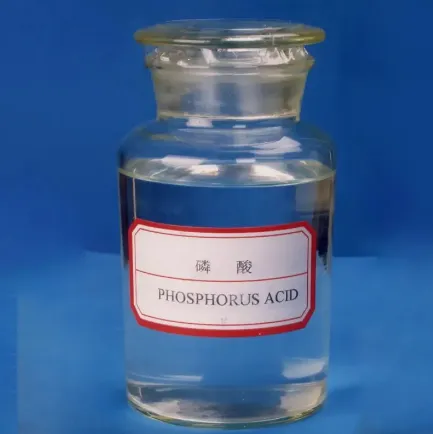TEL: 0086-311-88862036

Jan . 20, 2025 07:39
Back to list
types of organic fertilizers
Organic fertilizers have witnessed a resurgence in recent years as more people gravitate towards sustainable and environmentally friendly agricultural practices. These fertilizers not only enrich the soil with essential nutrients but also improve soil health, boost plant growth, and reduce the reliance on chemical fertilizers. Distinct in their formation and nutrient profile, several types of organic fertilizers cater to diverse gardening needs, ensuring a thriving ecosystem.
Another noteworthy option is fish emulsion, a liquid fertilizer made from processed fish waste. Recognized for its quick-release properties, fish emulsion is high in nitrogen and trace elements, making it ideal for a mid-season boost. Its liquid form allows for easy absorption by plant roots and leaves, and it's commonly used in foliar feeding and drip irrigation systems. Seaweed extract, either in liquid or powdered form, is a lesser-known but highly beneficial organic fertilizer. It contains a vast array of micronutrients, plant hormones, and growth stimulants that enhance plant health and resistance to stress. Seaweed extract is particularly effective when applied as a foliar spray, facilitating direct nutrient uptake by leaves. Green manure, involving the use of cover crops that are incorporated into the soil, is a less conventional but highly effective organic fertilizing method. Crops such as clover, vetch, or rye are grown and then plowed back into the soil, adding organic matter and enhancing soil fertility. This method not only boosts nutrient levels but improves soil structure and suppresses weeds. Cottonseed meal, a byproduct of cotton processing, provides a balanced nutrient profile of nitrogen, phosphorus, and potassium. Particularly useful for acid-loving plants like azaleas and blueberries, it slowly releases nutrients, preventing the risk of leaching and encouraging consistent plant growth. Lastly, humic acid, an organic compound derived from the decomposition of ancient organic matter, often finds its use as a soil amendment that enhances nutrient uptake and microbial activity. While not a fertilizer in the traditional sense, its ability to improve nutrient absorption in plants can significantly boost overall growth and productivity. Incorporating organic fertilizers into gardening and farming not only fosters sustainable plant growth but also revitalizes the soil, creating a robust foundation for years to come. The selection of the appropriate organic fertilizer should align with the specific nutritional requirements of the plants, soil conditions, and gardening goals. Through informed choices, gardeners and farmers can harness the full potential of organic fertilizers, contributing to an eco-conscious, flourishing environment.


Another noteworthy option is fish emulsion, a liquid fertilizer made from processed fish waste. Recognized for its quick-release properties, fish emulsion is high in nitrogen and trace elements, making it ideal for a mid-season boost. Its liquid form allows for easy absorption by plant roots and leaves, and it's commonly used in foliar feeding and drip irrigation systems. Seaweed extract, either in liquid or powdered form, is a lesser-known but highly beneficial organic fertilizer. It contains a vast array of micronutrients, plant hormones, and growth stimulants that enhance plant health and resistance to stress. Seaweed extract is particularly effective when applied as a foliar spray, facilitating direct nutrient uptake by leaves. Green manure, involving the use of cover crops that are incorporated into the soil, is a less conventional but highly effective organic fertilizing method. Crops such as clover, vetch, or rye are grown and then plowed back into the soil, adding organic matter and enhancing soil fertility. This method not only boosts nutrient levels but improves soil structure and suppresses weeds. Cottonseed meal, a byproduct of cotton processing, provides a balanced nutrient profile of nitrogen, phosphorus, and potassium. Particularly useful for acid-loving plants like azaleas and blueberries, it slowly releases nutrients, preventing the risk of leaching and encouraging consistent plant growth. Lastly, humic acid, an organic compound derived from the decomposition of ancient organic matter, often finds its use as a soil amendment that enhances nutrient uptake and microbial activity. While not a fertilizer in the traditional sense, its ability to improve nutrient absorption in plants can significantly boost overall growth and productivity. Incorporating organic fertilizers into gardening and farming not only fosters sustainable plant growth but also revitalizes the soil, creating a robust foundation for years to come. The selection of the appropriate organic fertilizer should align with the specific nutritional requirements of the plants, soil conditions, and gardening goals. Through informed choices, gardeners and farmers can harness the full potential of organic fertilizers, contributing to an eco-conscious, flourishing environment.
Next:
Latest news
-
Pure Sodium Dichloroisocyanurate Dihydrate | Powerful DisinfectantNewsAug.29,2025
-
Industrial Chemicals: Quality & Purity for Every IndustryNewsAug.28,2025
-
Nitrile Rubber Honoring Strict Production StandardsNewsAug.22,2025
-
Aspartame Ingredients Honoring Food Safety ValuesNewsAug.22,2025
-
Fertilizer for Balanced Plant NutritionNewsAug.22,2025
-
Cyanide Gold Processing with High Purity AdditivesNewsAug.22,2025
-
Formic Acid in Textile Dyeing ApplicationsNewsAug.22,2025
HOT PRODUCTS
Hebei Tenger Chemical Technology Co., Ltd. focuses on the chemical industry and is committed to the export service of chemical raw materials.
-

view more DiethanolisopropanolamineIn the ever-growing field of chemical solutions, diethanolisopropanolamine (DEIPA) stands out as a versatile and important compound. Due to its unique chemical structure and properties, DEIPA is of interest to various industries including construction, personal care, and agriculture. -

view more TriisopropanolamineTriisopropanolamine (TIPA) alkanol amine substance, is a kind of alcohol amine compound with amino and alcohol hydroxyl, and because of its molecules contains both amino and hydroxyl. -

view more Tetramethyl Thiuram DisulfideTetramethyl thiuram disulfide, also known as TMTD, is a white to light-yellow powder with a distinct sulfur-like odor. It is soluble in organic solvents such as benzene, acetone, and ethyl acetate, making it highly versatile for use in different formulations. TMTD is known for its excellent vulcanization acceleration properties, which makes it a key ingredient in the production of rubber products. Additionally, it acts as an effective fungicide and bactericide, making it valuable in agricultural applications. Its high purity and stability ensure consistent performance, making it a preferred choice for manufacturers across various industries.





